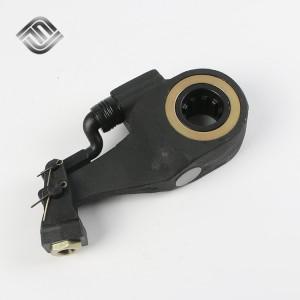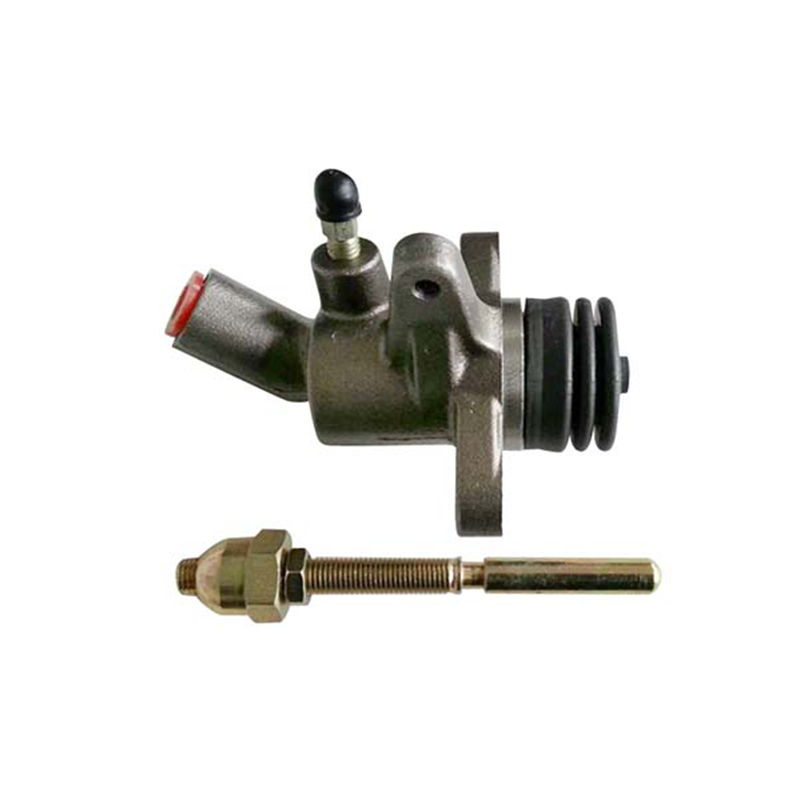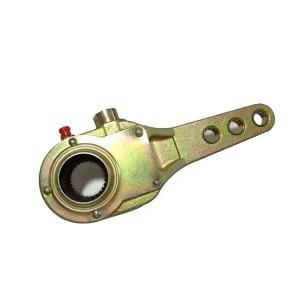
You may notice your clutch pedal feels soft or spongy. Shifting gears can become hard. Watch for fluid leaks near your transmission or a clutch pedal that sticks to the floor.
Quick action helps you avoid expensive repairs. Ignoring these signs can cause bigger problems with your clutch slave cylinder.
Key Takeaways
- Watch for a soft clutch pedal, hard gear shifting, or fluid leaks near the transmission as early signs of clutch slave cylinder problems.
- Stop driving and seek professional help immediately if the clutch pedal sticks to the floor or shifting becomes very difficult to avoid costly damage.
- Check your clutch fluid regularly and fix leaks quickly to keep your clutch system working smoothly and extend its life.
Clutch Slave Cylinder Failure: Key Symptoms and Diagnosis

Soft or Spongy Clutch Pedal
You may notice your clutch pedal feels soft or spongy when you press it. This happens because the clutch slave cylinder cannot hold pressure. Air or fluid leaks inside the system often cause this problem. When you feel a change in pedal resistance, you should check the clutch system right away. A healthy pedal should feel firm and return smoothly after each press.
Difficulty Shifting Gears
Trouble shifting gears is a clear sign of clutch slave cylinder issues. You might hear grinding noises or feel resistance when you try to move the gear stick. This happens because the clutch does not disengage fully. If you ignore this symptom, you risk damaging your transmission. Always pay attention to how your truck shifts, especially if you drive an ISUZU truck that relies on smooth clutch operation.
Fluid Leaks Near the Transmission
Look for fluid leaks under your truck, especially near the transmission. The clutch slave cylinder uses hydraulic fluid to work. If you see puddles or wet spots, you may have a leak. Leaking fluid means the system cannot build enough pressure. This can lead to clutch failure. Use a flashlight to check for leaks after parking your truck.
Tip: Place a piece of cardboard under your truck overnight. In the morning, check for any new fluid spots. This helps you spot leaks early.
Clutch Pedal Stuck to the Floor
A clutch pedal that sticks to the floor signals a serious problem. The clutch slave cylinder may have failed completely. When this happens, you cannot shift gears at all. You should not drive your truck if the pedal stays down. Call for help or arrange for a tow to prevent further damage.
Visual Inspection for Leaks
You can perform a simple visual inspection to check for leaks. Look at the area around the clutch slave cylinder and the hydraulic lines. Signs of trouble include wetness, stains, or drips. If you see any of these, you need to address the issue quickly. Clean the area and check again after driving a short distance.
Checking Clutch Fluid Level
Check the clutch fluid reservoir under the hood. Low fluid levels often point to a leak in the clutch slave cylinder or another part of the system. Use the markings on the reservoir to see if the fluid is below the recommended level. Always use the correct type of fluid for your truck. If you need to refill often, you likely have a leak.
| Step | What to Do | Why It Matters |
|---|---|---|
| 1 | Locate the reservoir | Ensures correct checking |
| 2 | Check fluid level | Detects leaks early |
| 3 | Top up if needed | Maintains system pressure |
Testing Pedal Response
Press the clutch pedal several times and observe how it feels. A healthy clutch slave cylinder gives a steady, firm response. If the pedal feels uneven or sinks slowly, you may have a problem. Listen for any unusual sounds, such as hissing or squeaking. These noises can signal air or fluid issues in the system.
Inspecting for Air in the System
Air in the hydraulic system can cause clutch problems. You might notice a spongy pedal or inconsistent clutch action. To check for air, you can bleed the system. This process removes trapped air and restores normal function. If you do not feel comfortable doing this, ask a professional for help.
Note: Air in the system often enters through leaks or during repairs. Always check for leaks before bleeding the clutch system.
What to Do If Your Clutch Slave Cylinder Fails

Immediate Actions to Prevent Further Damage
If you notice your clutch pedal feels odd or you see fluid leaks, stop driving your truck. Turn off the engine and check under the hood. Look for low fluid in the reservoir. If you find a leak, avoid pressing the clutch pedal. This helps prevent more damage to the clutch slave cylinder and other parts.
When to Seek Professional Help
You should call a mechanic if you cannot shift gears or if the clutch pedal stays on the floor. A professional can inspect your truck and replace the faulty part. Mechanics have the right tools and know how to bleed the system and install a new clutch slave cylinder safely.
Temporary Solutions vs. Permanent Repairs
Sometimes, you can add fluid to the reservoir as a short-term fix. This may help you drive a short distance to a repair shop. Remember, this is not a real solution. Only a full repair or replacement will fix the problem for good.
| Solution Type | What It Does | When to Use |
|---|---|---|
| Temporary | Adds fluid, stops gap | Emergency only |
| Permanent | Replaces cylinder | Always recommended |
Maintenance Tips to Prevent Future Issues
Check your clutch fluid often. Watch for leaks and listen for strange sounds when you press the pedal. Use the right type of fluid for your truck. Regular checks help you catch problems early.
Warning Signs Not to Ignore
Never ignore a spongy pedal, hard shifting, or fluid leaks. These signs mean your clutch slave cylinder needs attention. Quick action keeps your truck safe and running well.
- Watch for a soft clutch pedal, hard shifting, or leaks.
- Act fast if you notice these signs.
- Regular checks help your clutch slave cylinder last longer.
Quick action keeps your truck safe and saves money on repairs.
FAQ
How often should you check your clutch fluid?
You should check your clutch fluid every month. Regular checks help you spot leaks early and keep your clutch system working well.
Can you drive with a bad clutch slave cylinder?
You should not drive with a bad clutch slave cylinder. This can cause more damage and leave you stranded. Always fix the problem as soon as possible.
What makes the FANGJIE clutch slave cylinder a good choice?
FANGJIE clutch slave cylinders use strong materials and precise engineering. You get reliable performance and a perfect fit for ISUZU trucks.
Post time: Jul-18-2025





